If you’re depending on Medicaid or Medicare to fight an opioid addiction… the system might not have your back.
A Rutgers University review of medical records put the numbers on the table: publicly insured patients with opioid dependence often get the short end of the stick when it comes to behavioral health services. Meanwhile, private care thrives. It’s real messy—and real dangerous when addiction is life-or-death.
Think about a friend who’s at their wit’s end. They’ve weathered job losses, shaky family ties—you know, the classic opioid story spiral. They’ve got the insurance, but their caseworker? Shrugs. Inpatient rehab waitlists? Months long. Therapist referrals? Dusty file cabinets. It’s like promising a life raft but tying it with knots they can’t undo.
Why Medicaid Falls Short
“You’ve got the card,” hipsters say. Like drug rehab’s some divination box where a slip of paper gives you clarity.
What exactly deters Medicaid users from accessing care?
Here’s the brutal truth: Medicaid addiction services are like that sad little gymnasium in a small town—at capacity and underfunded. While Suboxone or Naltrexone might be accessible, therapy? Group sessions? Not so much. Programs that emphasize counseling, like those in Lakshwadeep, India, with their oceanfront relaxation and yoga, are far from typical coverage plans. According to a 2024 Addiction Center report, destination rehabs thrive in scenic locations—but Medicaid rarely says yes to tropical terrain or snowy escapes.
Common hurdles Mire Rehab Ground Before It Rises
| Hurdles Medicaiders Face | Examples |
|---|---|
| Specialist availability | In Everest, USA, 97% of counties lack a DEA-approved physician counseling for MAT. |
| Transport costs | Sarah from Chattanooga needed three buses for weekly outpatient meetups — cost her $70 she could’ve blown on groceries. |
| Co-pay uncertainty | Why face therapy when $10 sacred cause could end up as a rejected check? Worse yet, endo-rehab wannabe’s ask Medicaid to reimburse only 30% at a time. |
You wake up 2 a.m., hot-wired with trembling fear and cravings. Finally mustering courage to pick up the phone, but the last thing you want? A 50-minute hold with Muzak of someone asking, ‘Do we accept Medicaid?’
Rural vs. Urban Barriers
Ever notice how only certain places get flashing rehab billboards?
Do rural zip codes doom addiction treatment access?
“Real estate does matter,” says Taylor Recovery’s sober travel guide. Urban oasis? Manhattan’s got medication-assisted clinics lined like subway stations. But in jammed log cabin towns, like from Bihar, India, to Utah, treatment becomes a scavenger hunt with too few clues. A 2019 Addiction Center article chronicled John’s story in rural West Virginia—150-mile round trip for methadone, same car year he’d driven to his brother’s funeral. Recovery on wheels. Sad, physical miles down.
Medicaid’s Wild Card: Telehealth vs. No Connection
Some rural clinics try telehealth counseling. Makes sense: lock yourself in your pick-up truck blanket holder and Zoom a therapist. But—uh-oh—if your internet’s as pokey as dial-up, or no smartphone credit lines, you’re back to square 2.
Are Destination Rehabs Worth It?
How compelling is the ocean breeze promise when your wallet’s sandy dry?
Can a Florida rehab getaway make a difference?
Man, I get it. You’ve sweated through sweat lodge in rehab buzz. But “destination” isn’t a vacation—it’s meant to fix your reset key. And yes, some Sober Cruise packages feed hope. The trouble? These escapes—like Sober Beach Heaven in Fort Lauderdale—cost longer than your insurance consent. “Their glow-up makes super sense when traveling away from stress reduces relapse triggers,” says the Newsweek 2024 rehab ranglist, in praising private hubs that consistently scored high.
Location ≠ Luxury (In Public Healthcare)
Florida programs speak in success ratios. But if you hold only Medicaid, you might land in a brick institutional center that feels more like waiting line than meadow. Real wasthave question: is “sobering up” an emotional versus monetary balance? Yeah. Endo. Always.
Meet Alex, Omaha farmer, whose therapist told him to “prioritize economic savvy recovery sources” under Medicare behavioral health. He tested a USDA telehealth grant… nooooooo. The package excluded counseling. That’s the reality: sometimes funding rivers feed dams, not healing ground.
Treatment Trade-offs You Must Understand
Get real messy with this one: medications versus mind-heavy recovery.
Is methadone a crutch or a lifeline?
“It got me out of the ditch,” someone sighed during a Springfield meetup. Methadone? Medical marvel. But FDA cited a 28% overdependency rate when used beyond 12 months.
For others? Therapies like motivational interviewing (MI) work like trying to grow sprigs in desert. It’s gripping, plus learn tools. Ever heard of Cognitive Behavioral Therapy (CBT) for opioids? They’ll help you unshackle your thought chains—one study shows a 40% relapse reduction. Just has a catch: Medicare behavioral health coverage? Thanked for acute cases only, stress splashes unless you demonstrably do well at it.
Is delayed care worth the warehouse voucher refusal?
Been there: burned out wait time. But look. Speedy access typically gets you MAT—straightforward. Behavioral concentration means less waitlisted, but luck depends on whimsy zip-based criteria.
The real play? Combine both. Your body reacts to medicine, but mind heals in someone’s shared experiences. You can’t cake-walk healing.
Pushing Policy Forward
What would better Medicaid addiction coverage even look like?
Think beyond hippie squeals: demand comprehensive coverage. Imagine if every state had Murmansk Norway-level support—where everyone qualified for ministries giving housing support plus prolonged state-offered healing. Florida comes close: “Inpatient fungus among us rehab spaces shuffle in 48 hours,” their agency reps boast.
Seven States Leading Change
- California: offering sober coliving under Medicaid as of 2025
- New York: forced private Medicaid insurers to flatten co-pay
- New Mexico: state grants to rural facilities purchasing real-time teletherapy tablets
- Adjacency: Every public insurance opioid care policy moved by concerned voices. Advocate, dammit. Your survival should be everyone’s heartbeat.
“Nacho average Wednesday,” a patient activist wrestles with my recorder. “Waited 187 days for a therapist in Tennessee who specialized. Medicaid declined. Found this whole group online? That was my breakthrough.”
Equity’s Edge
Here’s my concluding take: Your insurance type shouldn’t cap your potential comeback. Big government ain’t typo-grind but advocacy logs into the grassroot which funds initially elbow their way into quicker healing lanes.
Your options are slim? Impossible? Never. Tap federallisted 1040 clinics via the FQHC locator. Check your Medicaid addiction services eligibility for state-by-state remixes.
Or talk yourself so.Nots to folk circles like Narcotics Anon—free, peer-to-peer and sometimes stranger carbs offered on naloxone rollout.
At day’s grind, remember: knowledge kills opiate’s stare, but community loves life. You deserve both.
Real question now—it’s your case. What barriers have you faced? Shout them below. Let’s grease the wheels of discussion, pass the mic of hardship and hope. Word is power. What local solutions exist below investor headlines? Let the healinguhn of human stories not shrink from silence.


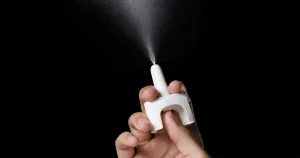
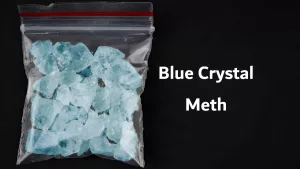
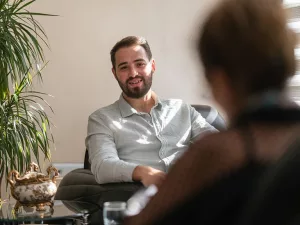
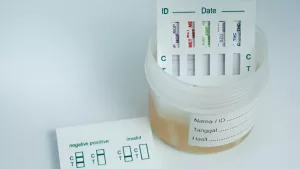











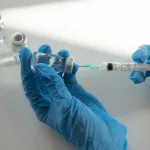



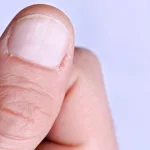



Leave a Reply
You must be logged in to post a comment.